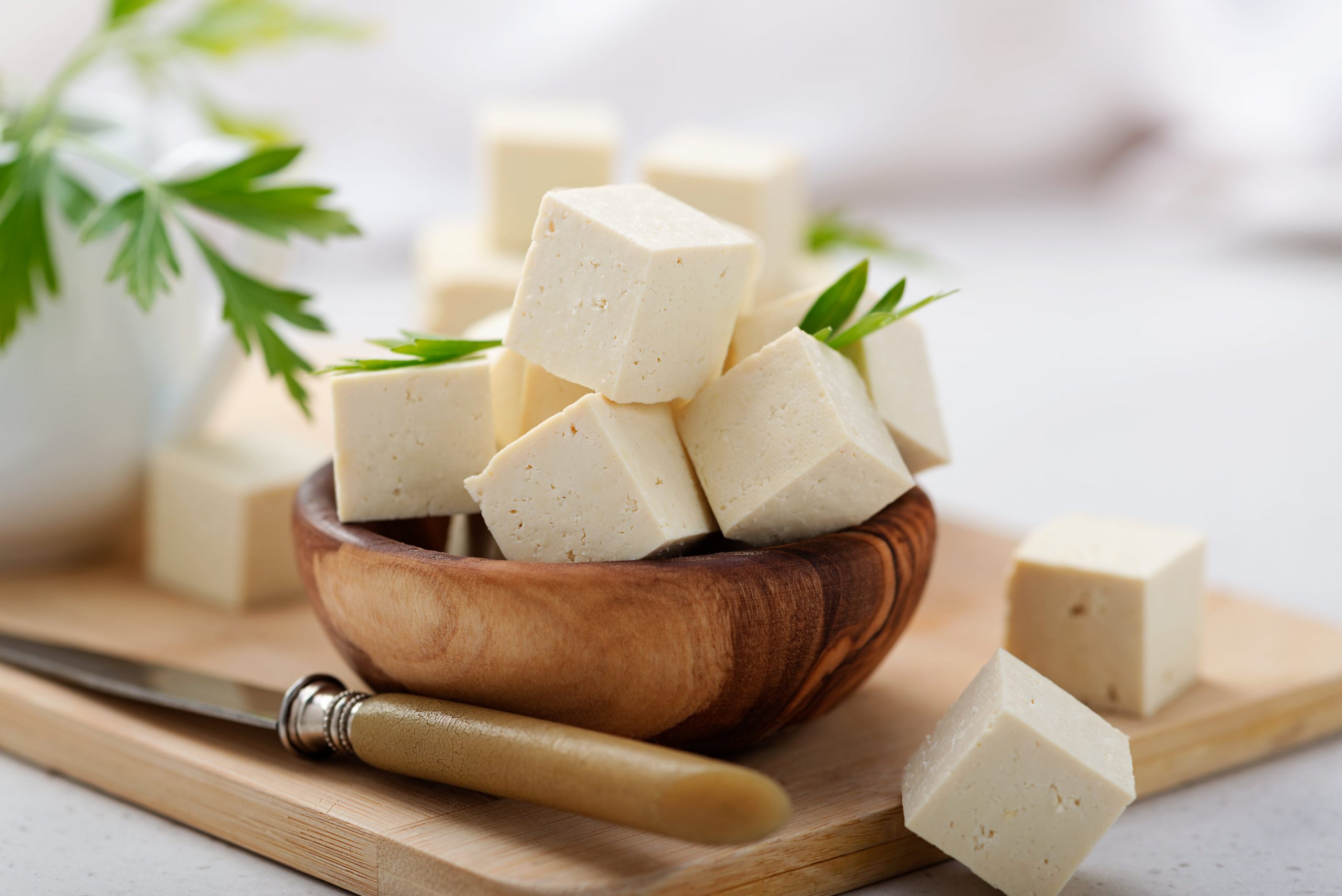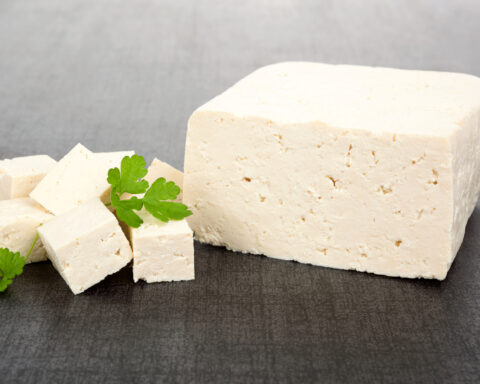Lately, the consumption of tofu has gained top attention. Knowing what is behind it, its health benefits, and its risks are as good as sticking to a healthy diet.
Soybean curds are the primary source of tofu. This type of food is usually free of gluten with low-calorie content. It is amazing how consuming tofu provides your body with iron and calcium. Tofu is also free of cholesterol. Vegans and vegetarians can find tofu a good food alternative as it is an excellent sourceplant-based of protein. However, some people claim that tofu is a genetically modified food, and for that matter, it should be deemed an unhealthy food. This article is your eye-opener on the debate on tofu.
What Is Tofu?
Would it not just be smart to pause a bit and get to know what tofu is? The tofu was first developed in China. The procedure followed in making tofu is quite similar to that of cheesemaking. This delicious food is derived from soy milk or curd, condensed, and pressed into solid blocks with white color. The discovery of tofu is thought to be accidental and dates back to 2 millenniums when a Chinese cook mixed soy milk and nigari. Nigari is a residue obtained from the extraction of salt from seawater. This mineral is what keeps and maintains tofu in its solid form. Soybeans used to make tofu are largely produced in the United States and are cultivated as genetically modified organisms (GMOs). If you have concerns against GMOs, then you can opt for tofu brands that are non-GMOs.
Health Benefits of Tofu
Tofu is Loaded with Nutrients
Tofu is a great source of protein and all the vital amino acids that your body needs are contained in it. It is also loaded with carbs, fats, and various vitamins and minerals. TheUnited States Department of Agriculture database states that one serving of tofu weighing 100 g contains 8 g of fat, 2 g carbs, 1 g of fiber, and 4 g of fat. The same 100 g of tofu also contains the recommended daily intake (RDI) of the following minerals in percentage: manganese 31%, calcium 20%, selenium 14%, phosphorus 12%, copper 11%, magnesium 9%, iron 9%, and zinc 6%. The total calorie content in 100 g of tofu is just 70. It is arguably true that tofu is a nutrient-dense food.
Isoflavones in Tofu are Beneficial
Soybeans used to make tofu usually contains isoflavones. 100 g serving of tofu contains 24.7 mg of isoflavones. These compounds are thought to have estrogen agonist and estrogen antagonism properties. With these properties, isoflavones in tofu may help prevent certain types of cancer. They can also protect against cardiac disease and osteoporosis. Keep in mind that consuming isoflavones in excess can pose some risks to your health. However, tofu has all the benefits that you can be mention, courtesy of isoflavones.
May Protect Against Heart Disease
Researchers have not fully managed to establish the effects of isoflavones on heart health. Isoflavones in tofu are effective at lowering the levels of low-density lipoproteins (LDL) “bad” cholesterol. It is advisable that you increase your intake of soy and other legumes, and by doing so, you can decrease your risk of heart disease. It is believed that isoflavones in soy can also reduce the inflammation of blood vessels as well as improving their elasticity. Similarly, isoflavones also prevent heart diseases by lowering body mass index, increasing “good” high-density lipoproteins (HDL) cholesterol, reducing waist circumference, and improving fasting insulin. All these, if left unchecked, can increase your risk of heart disease.
May Improve Post-Menopausal Symptoms
As women age gracefully past menopause, amounts of estrogen in the blood lowers gradually. Eventually, they may present with some symptoms which cause uneasiness in many women. Such symptoms include hot flashes, headaches, and restlessness. Isoflavones in soy may help lessen these symptoms because they are phytoestrogens in nature.
May Prevent Diabetes
Diabetes is a common chronic condition that is characterized mainly by increased blood sugars. Insulin resistance, impaired production of insulin, and missed doses of insulin are key contributors to this condition. Isoflavones in soy can help control and maintain blood sugar. Daily consumption of 100 g of isoflavones can reduce blood sugar by up to 15%. Similarly, it can reduce insulin levels in the blood by 23%. It is also believed that isoflavones can also increase insulin sensitivity. However, more studies are needed in this area of interest.
May Reduce the Risk of Breast Cancer
Cancer is one of the leading causes of global fatalities. It is due to the uncontrolled growth of cells. One research published in PubMed indicated that consuming tofu and soy products can help reduce your risk of breast cancer. Isoflavones can positively impact on menstrual cycle as well increasing the levels of estrogen in the blood.
May Reduce the Risk of Osteoporosis
Osteoporosis is the weakening and fragility of bones due to reduced density. It is common in women in their menopause. Isoflavones in tofu can help increase mineral density in bones, thus preventing bone loss.
Other benefits of consuming tofu and other foods containing isoflavones include improving brain function in older adults, preventing the skin from wrinkles, and increasing skin elasticity. It may also help with weight loss, with up to 10 pounds lost in just 52 weeks.
Side Effects of Tofu
Tofu has been associated with breast engorgement in some people. This is because of the effects of estrogen, which results in tumors, and for that reason, the intake of tofu may be limited in some women. Tofu has also been associated with thyroid issues as it contains goitrogen.
Conclusion
Tofu is a delicious food made by mixing nigari or precipitated calcium with soy milk. It is an excellent source of proteins with fewer calories. Since tofu is made from soy, it contains isoflavones, giving it various health benefits, including cancer prevention. However, a high intake of isoflavones can increase your risk of thyroid problems.
- How the Pec Deck Works Your Chest - April 19, 2024
- Homemade Eye Drops: Risks, Benefits, and More - April 19, 2024
- SMART TOOTHPICKS COMPANY - July 29, 2023







